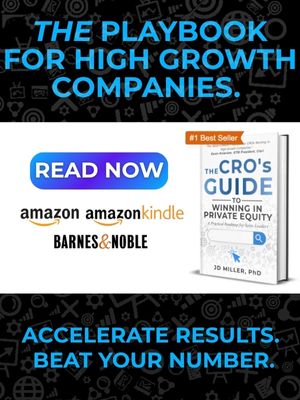
Video is Useless

The Value of Video & Expertise: A Critical Look at Video Insights in Sales and Business Development
TL;DR
Not all video insights, especially free ones on LinkedIn, come from experienced practitioners. Many creators repackage secondhand information, presenting it as firsthand expertise. Use such content as inspiration, not directives, and verify the creator’s experience and credentials. Real expertise often requires an investment, but it delivers actionable strategies and measurable results. Treat free content as a starting point, not a substitute for proven professional guidance.
Experience vs. Theory: Knowing the Difference
Imagine someone enthusiastically explaining the benefits of riding a bike. They might even give you step-by-step instructions. However, if their experience is limited to riding leisurely in their neighborhood, can they credibly teach you how to navigate a high-speed mountain descent with precision? This analogy illustrates the gap between theoretical understanding and hands-on expertise.
Far too often, videos are created by individuals who haven’t fully lived the experiences they’re sharing. Instead, they repackage secondhand information, presenting it as their own. While the content might sound polished and technically accurate, the creator’s lack of firsthand experience undermines its true value.
Why This Matters
The issue isn’t that free online content lacks value; it’s about understanding its limits. The problem arises when such information is treated as gospel and directly applied to team strategies or business processes without vetting its source.
For example, you might see a video outlining the importance of follow-up calls in a sales process, only to discover that the creator struggles to execute follow-ups themselves. This disconnect can lead to misaligned expectations and ineffective practices when such advice is forwarded as directives.
Identifying Credible Sources
When consuming video content, ask yourself:
- Does the Creator Have Real-World Experience? Look at their résumé. Do they have years of hands-on work in the area they’re discussing, or is their expertise superficial?
- Are They Active Practitioners? Many true experts are too immersed in their work to spend significant time creating videos. Those who do often charge for their insights because their knowledge holds measurable value.
- Is the Content Actionable or Just Theoretical? Great content provides clear, actionable steps backed by experience, not just regurgitated theory.
Free Content: Use with Caution
Free content on platforms like LinkedIn serves a purpose—it’s a great starting point for sparking ideas. However, treating such content as a blueprint for your team or organization can be risky. Free videos are often designed to generate likes and engagement for the creator, not to provide a comprehensive roadmap for success.
To make informed decisions:
- Use free content as a thought starter, not a final directive.
- Seek out the deeper, actionable insights offered by practitioners with proven expertise, even if it requires a financial investment.
The Cost of Real Expertise
Hiring someone who operates “from the front lines” will likely cost money. However, that investment often pays dividends in actionable strategies and measurable results. Free content is valuable for broad insights and brainstorming but rarely provides the depth needed for significant business decisions or strategy execution.
The Red Flags
Here’s how to spot content that may not hold the weight you need:
- Unsubstantiated Claims: The speaker’s résumé doesn’t align with the advice they’re giving.
- Focus on Engagement Over Value: The content seems crafted to generate likes and shares rather than provide actionable insights.
- Low Production Value: While not always a deal-breaker, poor presentation can reflect a lack of professionalism.
The Exception to the Rule
Not all free content is hollow. Some creators genuinely share insights from a place of deep experience and knowledge. However, you should still validate their claims by examining their background and résumé. If their wisdom checks out and aligns with your goals, it might be worth pursuing further, even if it means paying for deeper engagement.
A Word of Caution and Encouragement
While relying on readily available content to guide your team is tempting, remember that real-world application demands more than theoretical knowledge. Look beyond the surface, engage with credible practitioners, and don’t hesitate to invest in the right expertise.
Ultimately, free content should be treated as a conversation starter, not the final word. Use it to inform your thinking but rely on proven professionals to execute strategies to drive meaningful business results.
If I can help, give me a ring.
– Tim



































